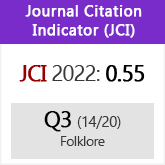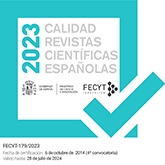Paul Rabinow y la antropología de lo contemporáneo
DOI:
https://doi.org/10.3989/dra.2023.004Palabras clave:
Rabinow, Foucault, Contemporáneo, Ética, Antropología colaborativaResumen
A lo largo de los últimos veinte años de su vida, Paul Rabinow trabajó junto con sus colaboradores en el diseño y el testeo de una Antropología de lo Contemporáneo. Dicha antropología pretende remediar la lógica de la investigación, así como sus emplazamientos, modos de trabajo y el ethos con el cual conducirse. Este artículo presenta una visión global de la trayectoria de uno de los antropólogos más destacados centrándose en el proyecto comentado. Al aproximarse a su obra será posible, a su vez, identificar algunas de las razones que producen en la disciplina presente cierta grado de stasis.
Descargas
Citas
Agamben, Giorgio. 2008 [2007]. «¿Qué es lo contemporáneo?». Desnudez: 17-27. Valencia: Pre-Textos.
Beck, Ulrich. 1998 [1986]. La sociedad del riesgo. Hacia una nueva modernidad. Barcelona: Paidós.
Beck, Ulrich. 2002 [1999]. La sociedad del riesgo global. Madrid: Siglo XXI.
Blumenberg, Hans. 2008 [1966]. La legitimación de la Edad Moderna. Valencia: Pre-Textos.
Bolter, Jay David y Richard Grusin. 1999. Remediation: Understanding New Media. Cambridge, MA.: The MIT Press. https://doi.org/10.1108/ccij.1999.4.4.208.1
Boyer, Dominic y George Marcus. 2021. Collaborative Anthropology Today: A Collection of Exceptions. Ithaca, NY.: Cornell University Press. https://doi.org/10.7591/cornell/9781501753343.001.0001
Clifford, James y Marcus, George (eds.). 1986. Writing Culture. The Poetics and Politics of Ethnography. Berkeley y Los Angeles: The University of California Press.
Collier, Stephen, Andrew Lakoff y Paul Rabinow. 2006. «What is a Laboratory in the Human Sciences? Working Paper Nº 1». Anthropology of the Contemporary Research Collaboratory. Disponible en: <http://anthropos-lab.net/documents/wps/what-is-a-laboratory-in-the-human-sciences>. Fecha de acceso: 20 de septiembre de 2008.
Dan-Cohen, Talia. 2021. A Simpler Life: Synthetic Biological Experiments. Ithaca, NY.: Cornell University Press. https://doi.org/10.7591/cornell/9781501753442.001.0001
Descola, Philippe. 2013 [2005]. Más allá de la naturaleza y la cultura. Buenos Aires: Amorrortu.
Dewey, John. 1991 [1938]. Logic: The Theory of Inquiry. ohn Dewey. Carbondale: Southern Illinois University Press.
Donzelot, Jacques. 2007 [1984]. La invención de lo social. Buenos Aires: Nueva Visión.
Dreyfus, Hubert y Paul Rabinow. 2001 [1983]. Michel Foucault: más allá del estructuralismo y la hermenéutica. Buenos Aires: Nueva Visión.
Ewald, François. 1986. L'Etat Providence. París: Grasset.
Fabian, Johannes. 1983. Time and the Other. How Anthropology Makes Its Other. Nueva York: Columbia University Press.
Fearnley, Lyle. 2020. Virulent Zones. Animal Disease and Global Health at China's Pandemic Epicenter. Durham, NC: Duke University Press. https://doi.org/10.1215/9781478012580
Foucault, Michel. 2006 [1966]. Las palabras y las cosas. Madrid: Siglo XXI.
Foucault, Michel. 2009 [1967]. La arqueología del saber Madrid: Siglo XXI.
Foucault, Michel. 2010 [1972]. Los intelectuales y el poder (Entrevista con G. Deleuze). Obras esenciales: 433-441. Barcelona: Paidós.
Foucault, Michel. 2002 [1975]. Vigilar y castigar. Buenos Aires: Siglo XXI.
Foucault, Michel. 2003 [1975-1976]. Hay que defender la sociedad. Madrid: Akal.
Foucault, Michel. 2019 [1976]. Historia de la Sexualidad 1. La voluntad de saber. Madrid: Siglo XXI.
Foucault, Michel. 2006 [1977-1978]. Seguridad, territorio y población. México D.F. / Buenos Aires: Fondo de Cultura Económica.
Foucault, Michel. 2005 [1982]. La hermenéutica del sujeto. Madrid: Siglo XXI.
Foucault, Michel. 2009 [1982-1983]. El gobierno de sí y de los otros. Buenos Aires / México D.F.: Fondo de Cultura Económica.
Foucault, Michel. 2010 [1983-1984]. El coraje de la verdad. Buenos Aires / México D.F.: Fondo de Cultura Económica.
Jameson, Fredric. 1984. «Periodizing the Sixties», en Sohnya Sayres et al. (eds.), The Sixties Without Apology: 178-208. Minneapolis: University of Minnesota.
Foucault, Michel. 2007 [1983]. «¿Qué es la Ilustración?». En Sobre la ilustración. Barcelona: Tusquets.
Foucault, Michel. 1997 [1984]. «Polemics, Politics, and Problematization». En Rabinow, Paul (ed.), Michel Foucault. Ethics, Subjectivity and Truth: 111-119. Nueva York: The New Press.
Hacking, Ian. 2001 [1998]. ¿La construcción social de qué? Barcelona: Paidós.
Hymes, Dell (ed.). 1972. Reinventing Anthropology. Ann Arbor: University of Michigan Press.
Korsby, Trine y Anthony Stavrianakis. 2018. «Moments in Collaboration: Experiments in Concept Work». Ethnos 83(1): 39-57. https://doi.org/10.1080/00141844.2015.1137606
Krauss, Rosalind. 2011. Under Blue Cup. Cambridge, MA.: The MIT Press.
Lakoff, Andrew. 2017. Unprepared: Global Health in a Time of Emergency. Oakland, CA.: University of California Press. https://doi.org/10.1525/9780520968417
Lakoff, Andrew y Stephen Collier. 2008. Biosecurity Interventions. Global Health and Security in Question. Nueva York: Columbia University Press. https://doi.org/10.7312/lako14606 PMid:18691942
Lassiter, Luke. 2005. The Chicago Guide to Collaorative Ethnography. Chicago: The Chicago University Press. https://doi.org/10.7208/chicago/9780226467016.001.0001
PMCid:PMC1449504
Latour, Bruno. 2007 [1991]. Nunca fuimos modernos: Ensayo de antropología asimétrica. Madrid: Siglo XXI.
Latour, Bruno. 2013 [2012]. Investigación sobre los modos de existencia. Buenos Aires: Paidós.
Luhmann, Niklas. 1998 [1991]. Sociología del Riesgo. México: Universidad Iberoamericana.
Luhmann, Niklas. 1997 [1992]. Observaciones de la modernidad. Barcelona: Paidós.
Marcus, George, Stephen Collier y Andrew Lakoff. 2006. «What is Concept Work? An Exchange (E-mail exchange)», en T. Rees (coord.), Concept Work and Colaboration in the Antropology of the Contemporary. Anthropology of the Contemporary Research Collaboratory, Fecha de Acceso: 20 de septiembre de 2008.
Osborne, Peter. 2017. The Postconceptual Condition: Critical Essays. Londres: Verso.
Pálsson, Gisli y Paul Rabinow. 2001. «The Icelandic genome debate», en Trends in Biotechnology 19(5): 166-71. https://doi.org/10.1016/S0167-7799(01)01607-9
Rabinow, Paul. 1975. Symbolic Domination: Cultural Form and Historical Change in Marrocco. Chicago: University of Chicago Press.
Rabinow, Paul. 1992 [1977]. Reflexiones sobre un trabajo de campo en Marruecos. Barcelona: Júcar.
Rabinow, Paul. 1986. «Representations are Social Facts», en Marcus, G. y J. Clifford (eds.), Writing Culture. The Poetics and Politics of Ethnography: 234-261. Berkeley y Los Angeles: The University of California Press.
Rabinow, Paul. 1989. French Modern: Norms and Forms of the Social Environment. Chicago: University of Chicago Press.
Rabinow, Paul. 1996. Making PCR. A Story of Biotechnology. Chicago: University of Chicago Press. https://doi.org/10.7208/chicago/9780226216874.001.0001 PMid:8910305
Rabinow, Paul. 1999. French DNA. Trouble in Purgatory. Chicago: University of Chicago Press. https://doi.org/10.7208/chicago/9780226221922.001.0001 PMid:15199942
Rabinow, Paul. 2009 [2006]. «Pasos hacia un laboratorio antropológico». Revista de Antropología Experimental 9: 137-155.
Rabinow, Paul. 2008. Marking Time. On the Anthropology of the Contemporary. Princeton, NJ: Princeton University Press. https://doi.org/10.1515/9781400827992
Rabinow, Paul. 2011. The Accompaniment. Assembling the Contemporary. Chicago: University of Chicago Press. https://doi.org/10.7208/chicago/9780226701714.001.0001
Rabinow, Paul. 2017. Unconsolable Contemporary: Observing Gerhard Richter. Durham, NC: Duke University Press. https://doi.org/10.1215/9780822372271
Rabinow, Paul. 2020. The Privilege of Neglect. Berkeley, CA: Anthropology of the Contemporary Research Collaboratory.
Rabinow, Paul y Gaymon Bennett. 2012. Designing Human Practices. An Experiment with Synthetic Biology. Chicago: University of Chicago Press. https://doi.org/10.7208/chicago/9780226703152.001.0001 PMid:22741816
Rabinow, Paul y Talia Dan-Cohen. 2004. A Machine to Make a Future: Biotech Chronicles. Princeton: Princeton University Press.
Rabinow, Paul, George Marcus, James Faubion y Tobias Rees. 2008. Designs for an Anthropology of the contemporary. Durham, NC.: Duke University Press. https://doi.org/10.1215/9780822390060
Rabinow, Paul y Anthony Stavrianakis. 2013. Demands of the Day. On the Logic of Anthropological Inquiry. Chicago: University of Chicago Press. https://doi.org/10.7208/chicago/9780226037073.001.0001
PMCid:PMC3827500
Rabinow, Paul y Anthony Stavrianakis. 2014. Designs on the Contemporary. Anthropological Tests. Chicago: University of Chicago Press. https://doi.org/10.7208/chicago/9780226138503.001.0001
Rabinow, Paul y Anthony Stavrianakis. 2016. «Movement Space. Putting anthropological theory, concepts, and cases to the test». Hau: Journal of Ethnographic Theory 6(1): 403-431. https://doi.org/10.14318/hau6.1.021
Rabinow, Paul y Anthony Stavrianakis. 2019. Inquiry After Modernism. Berkeley, CA: Anthropology of the Contemporary Research Collaboratory.
Rabinow, Paul y Anthony Stavrianakis. 2020. From Chaos to Solace. Berkeley, CA: Anthropology of the Contemporary Research Collaboratory.
Rajchman, John. 2011. «The Contemporary: A New Idea?», en Avanessian, A. y L. Skrebowski (eds.), Aesthetics and Contemporary Art: 125-144. Berlín: Sternberg Press.
Rees, Tobias. 2018. After Ethnos. Durham, NC: Duke University Press.
Scheper-Hughes, Nancy. 2021. Paul Rabinow est Mort: A Memoir. Disponible en: <https://anthropology.berkeley.edu/sites/default/files/nancy-paul_rabinow_est_mort-editeddocx.pdf>. Fecha de acceso: 24 de junio de 2021.
Serres, Michel y Bruno Latour. 1995 [1990]. Conversations on Science, Culture, and Time. Ann Arbor: The University of Michigan Press. https://doi.org/10.3998/mpub.9736
Sloterdijk, Peter. 2011 [1999]. Normas para el Parque Humano. En Sin salvación. Tras las huellas de Heidegger: 197-220.Madrid: Akal.
Stavrianakis, Anthony. 2020. Leaving. A Narrative of Assisted Suicide. Oakland, Ca: University of California Press. https://doi.org/10.1525/9780520975545
Stavrianakis, Anthony y Paul Raninow. 2018. Apologia of a Crucible of Experience and Experimentation. Chronical of the Antropology of the Contemporary, 2004-2018. Snafu.org. Disponible en: <https://www.snafu.dog/arc-a-chronicle>. Fecha de acceso: 24 de junio de 2021.
Tsing, Anna. 2015. The Mushroom at the End of the World: On the Possibility of Life in Capitalist Ruins. Princeton: Princeton University Press. https://doi.org/10.1515/9781400873548 PMid:25897707
Vernant, Jean-Pierre. 2017 [1967]. Mito y pensamiento en la Grecia antigua. Madrid: Austral.
Viveiros de Castro, Eduardo. 2010 [2009]. Metafísicas caníbales. Líneas de antropología postestructural. Buenos Aires: Katz. https://doi.org/10.2307/j.ctvm7bdz4
Weber, Max. 2017 [1904]. La «objetividad» del conocimiento en la ciencia social y en la política social. Madrid: Alianza.
Publicado
Cómo citar
Número
Sección
Licencia
Derechos de autor 2023 Consejo Superior de Investigaciones Científicas (CSIC)

Esta obra está bajo una licencia internacional Creative Commons Atribución 4.0.
© CSIC. Los originales publicados en las ediciones impresa y electrónica de esta Revista son propiedad del Consejo Superior de Investigaciones Científicas, siendo necesario citar la procedencia en cualquier reproducción parcial o total.Salvo indicación contraria, todos los contenidos de la edición electrónica se distribuyen bajo una licencia de uso y distribución “Creative Commons Reconocimiento 4.0 Internacional ” (CC BY 4.0). Puede consultar desde aquí la versión informativa y el texto legal de la licencia. Esta circunstancia ha de hacerse constar expresamente de esta forma cuando sea necesario.
No se autoriza el depósito en repositorios, páginas web personales o similares de cualquier otra versión distinta a la publicada por el editor.
















